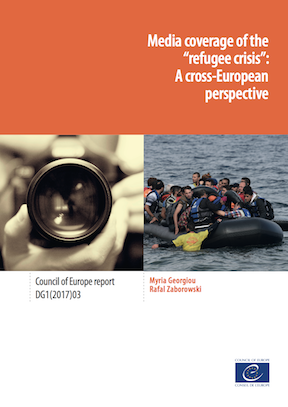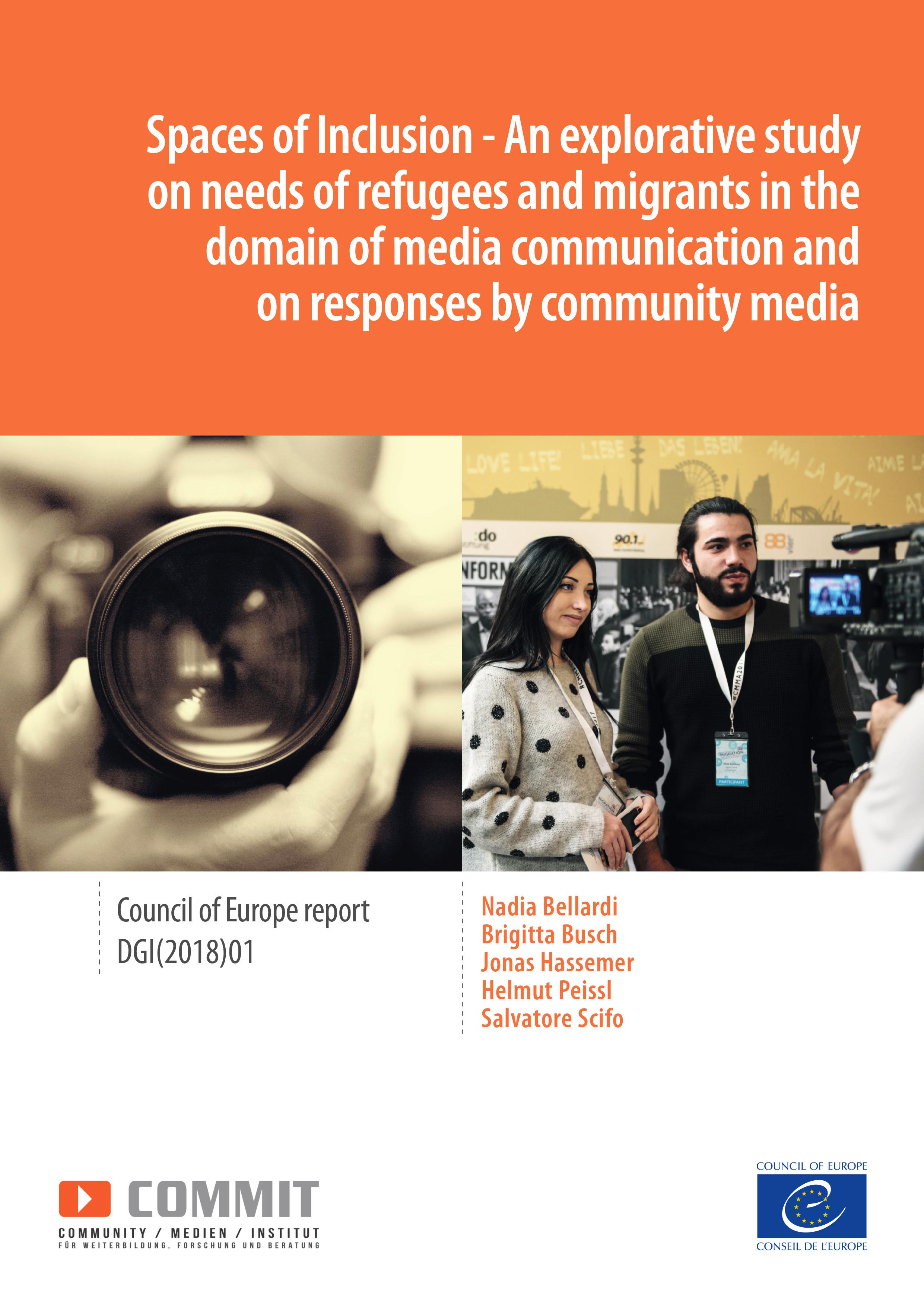Media and Refugees

This perspective contributed to negative and sometimes hostile attitudes amongst the public toward the newcomers. Two recent Council of Europe reports examine the role of media, the expectations and needs in the communication domain of migrants and refugees themselves, and the responses by community media.
Mainstream media constitute key and trusted resources for officials and the public to make sense of unfolding events and take appropriate action. Thus, the role of the media is crucial in providing a platform for complex issues to be unpacked, problematised and presented to the public. The European Court of Human Rights has consistently underlined the vital role of the media as a "public watchdog": they impart information and ideas on matters of public interest, and the public also has a right to receive them. As facilitators of public communication and discourse, media are widely viewed as an important tool for managing the increasing diversity in society and promoting inclusion.
Image © Shutterstock
Throughout 2015-2016, the arrival of refugees and migrants at European shores was the topic most widely discussed amongst the public, and it still remains high on agendas.
This report, commissioned by the Council of Europe, examines the narratives developed by print media in eight European countries and how they contributed to the public perception of unfolding events, shifting from careful tolerance to a securitisation of the debate and a narrative of fear. Throughout, there has been a limited opportunity in mainstream media coverage for refugees and migrants to present their own views and concerns, and little attention was paid to the individuals’ plight or the global and historical context of their displacement. Refugees and migrants are often portrayed as an undistinguishable group of anonymous and unskilled outsiders who are either vulnerable or dangerous. The dissemination of such biased or ill-founded information contributes to perpetuating stereotypes and creating an unfavourable environment not only for the reception of refugees but also for the longer-term perspectives of societal integration. The often divisive narratives focusing on threats to the security, welfare and cultures of European societies have contributed to the spread of hate, hostility and disinformation related to migrants and refugees.
A number of European studies and research initiatives have resulted in similar findings, pointing to shortcomings such as undue political influence, self-censorship inside newsrooms and a prevailing lack of resources, hampering the preparation of in-depth and well-researched content. Increased training of journalists, the promotion of best practices on both sides of the Mediterranean and the use of glossaries to address the prevailing ignorance of the correct terminology to describe migrants, refugees, displaced persons and their rights, have all been proposed as possible solutions. While it is essential to properly equip and prepare journalists and other media actors for the challenging task of evidence-based reporting on complex topics, it is just as important to ensure that adequate opportunities are provided to refugees and migrants themselves to express their views and communicate their concerns.
This study explores the media habits and particular needs of refugees and migrants through an ethnographic study. Good practice examples show how community media can meet the communicative needs of refugees and migrants by offering training and spaces for self- representation, and by offering points of entry into local networks.
Both Council of Europe reports contain recommendations for an inclusive media policy with respect to migrants and refugees. The studies unanimously highlight the need for joint action at all levels – by policy-makers, civil society organisations, public service, commercial and community media. In the first place, refugees and migrants should be recognised as relevant and respected parts of the audience with specific interests and needs (e. g. concerning information about rights, resources and duties, as well as the possibility to develop a voice that can be heard).
Media as a facilitator of public discourse cannot fulfil its important function when whole segments of the population are excluded, for example, newly arrived migrants and migrants who have resided in communities for longer periods but still encounter barriers in their access to media.
Community media, with their long experience of multilingual and interactive formats, have for decades involved newly arrived refugees and migrants in media production, thereby strengthening their access to local networks of communication.
Media makers and activists with a refugee or migrant background have played a key role in investigating and documenting alternative perspectives and providing important counter narratives where mainstream media fail.
Building on previous instruments, the Parliamentary Assembly of the Council of Europe called in 2017 for national policies to promote multimedia communication and information campaigns targeting both residents and migrants, with the aim of providing an integration-friendly environment for all.
In their efforts to promote media pluralism and diversity of content, Council of Europe member states should adequately support all sectors of the media: public, private and community based. The latter can play a particularly important role in polarised societies where inclusive media environments are indispensable to broaden access for all members of society to commonly shared communication spaces.

"Everyone has the right to freedom of expression"
Art. 10 European Convention on Human Rights




